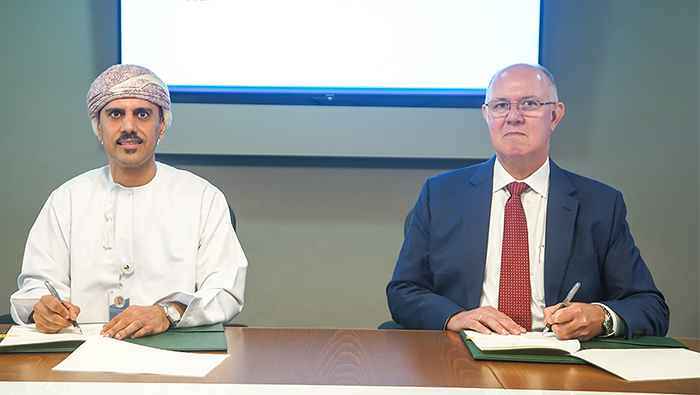
Muscat: The Oman Environmental Services Holding Company (be'ah) signed an agreement with Tialoc and Al Ramooz National to establish the second phase of the industrial waste treatment facility in the Sohar Free Zone.
The agreement was signed by Engineer Abdul Kareem Qasim Al Balushi, the COO of Hazardous Waste Operations and Christoph Engel, CEO of Tialoc Group, as part of be'ah's ongoing efforts to enhance industrial waste management infrastructure in the Sultanate.
The second phase of the project includes the development of an integrated facility for industrial waste treatment, encompassing hazardous waste treatment, physical and chemical processing, and facilities for the treatment of used oils and toxic waste. Additionally, storage tanks and advanced infrastructure will be provided to support operations. This project is expected to contribute to the national sustainability goals and bolster the local economy by creating new job opportunities.
Commenting on the signing of the agreement, Engineer AbdulKareem Al Balushi, the COO of Hazardous Waste Operations emphasized the importance of this project in improving industrial waste management in Oman, noting that it represents a significant step within the Sultanate’s strategy to address industrial waste challenges and provide sustainable, integrated solutions.
Christoph Engel, CEO of Tialoc Group, expressed his sincere gratitude to be'ah for selecting and placing their trust in Tialoc’s technology. Together with the teams from Tialoc and Al Ramooz, he is fully committed to implementing the advanced European technology and best practices that Tialoc has perfected over decades. Their objective is to develop the Plant in alignment with the specific needs and emerging trends of the Sohar Zone, and to extend its benefits throughout Oman. This project aspires to set a benchmark for integrated industrial waste treatment in the GCC region, harmonizing cutting-edge technology, industrial design aesthetics with eco-friendliness. This initiative is designed to eliminate pollution, reduce emissions, and carbon footprints, and contribute significantly to the Sustainable Environment Goals of Oman Vision 2040.
It is worth mentioning that the first phase of the industrial waste treatment facility in Sohar has been operational for several years and includes specialised industrial facilities, a solid waste storage facility, and a laboratory accredited by the Gulf Accreditation Center, making it the only one of its kind in the Sultanate of Oman.